
I don’t know where and when I first heard this quote, but it resonates even louder with me now as I am in my fourth decade of coaching.
“For every decade you age as a coach, the average age of the playing group stays the same.”
I was born in 1961, making me a late Boomer. I have coached Gen X, Y (Millenial) & Z athletes.
So, it is up to us as coaches to stay relevant and be open to changing methods to meet the demands of the changing generations.
| Born | Ages | |
| Gen Z | 1997-2012 | 10-25 |
| Millennials | 1981-1996 | 26-41 |
| Gen X | 1965-1980 | 42-57 |
| Boomers II | 1955-1964 | 58-67 |
| Boomers I | 1946-1954 | 68-76 |
I believe relevance is the key to longevity, and having a defined why is essential. The why can always be redefined and fine-tuned as you progress in your career. “Every day better!” is my why, but as Damian Marsh has said far more eloquently than I will ever be able to, “It’s about the buy-in you get from the players in the environment you help create.” So, with this in mind, it is how you interact with the playing group to ensure they are on board with what you all are trying to achieve.
You do not have to reinvent yourself completely to maintain relevance, but you do have to change elements to ensure that you are always moving forward. Staying up to date is highly important, but beware of gimmicks. Instead, maintain a firm grip on what you know works and then tweak the 20% that doesn’t.
Each year I embark on a new journey with a new group, and no two groups will be the same. So, it is essential to discuss why for every teammate.
I often use the following story to illustrate what we want our collective team to bring to the table.
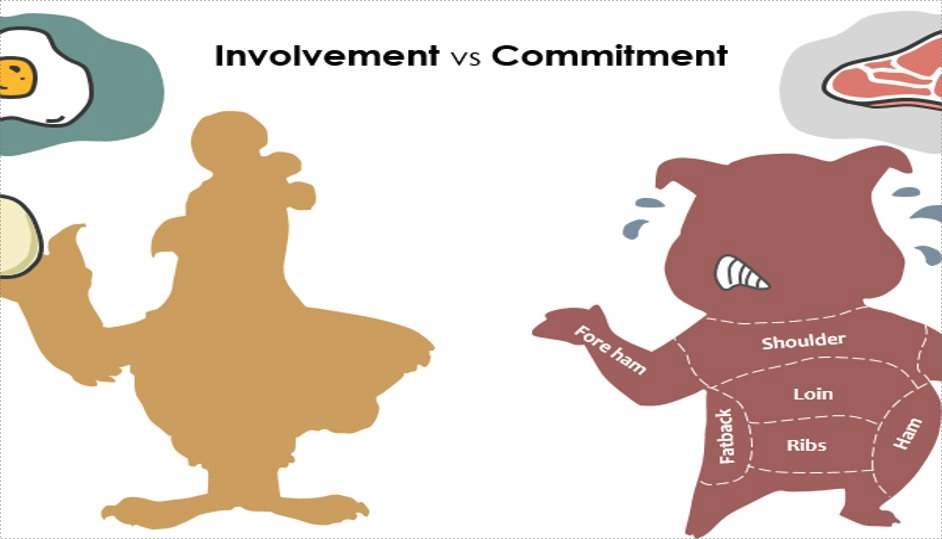
A pig and chicken are walking down the road. The chicken says, "Hey pig, I was thinking we should open a restuarant!"
Pig replies, "Hmm, maybe. What would we call it?"
The chicken responds, "How about 'ham-n-eggs'?"
The pig thinks for a moment and says: "No thanks. I'd be committed, but you'd only be involved."
From this analogy, I will describe the type of PIGs we want on our team.
Ultimately, we want our team to have all the emotional and physical necessities to excel and win. It’s the combination of physical attributes (e.g., intensity and grit) and strong emotional qualities (e.g., pride and purpose) that make a championship team.
Next, I’ll consult with the stakeholders (i.e., anyone with a stake in the game). Are the coaches on the same page with the players and parents? Is the medical staff attending to injuries, aches, and pains? Are the players in the best positions possible to succeed?
Building Buy-In
The key to achieving buy-in and compliance is applying the following equation:
C = E4
C equals Compliance, and there are four Es to consider; each E builds on the other, which is why it is an exponential equation rather than an arithmetic progression. The four Es are Education, Environment, Empowerment, and Everyone. Since teaching and coaching go hand-in-hand, I am honoured to have teaching as my profession and coaching as my trade. By teaching and developing an environment of trust, you empower players to make decisions based on knowledge, which creates a wave of inclusivity that a team can ride to success both on and off the playing field. Those are the 4 Es in action.
I’ve worked with thousands of athletes and hundreds of coaches and staff over the last four decades. So, I very much believe in the ethos of a Team First approach. The environment we create as a collective will influence how we approach, coach, and mentor the individual.
Educating Players
The following slides, taken directly from my preseason team talk, outlines how I attempt to start educating players from the get-go.
The three main areas I discuss are speed, strength, and fitness. I give explanations of what they are and how we will measure improvements. Each player needs to improve in all three areas, but the specific makeup of each player’s weekly plan is individualized to meet specific needs. It’s similar to a university program, where certain elements are mandatory lectures (e.g., rugby skills) while others are designed to be more specific tutorials (e.g., physical preparation).
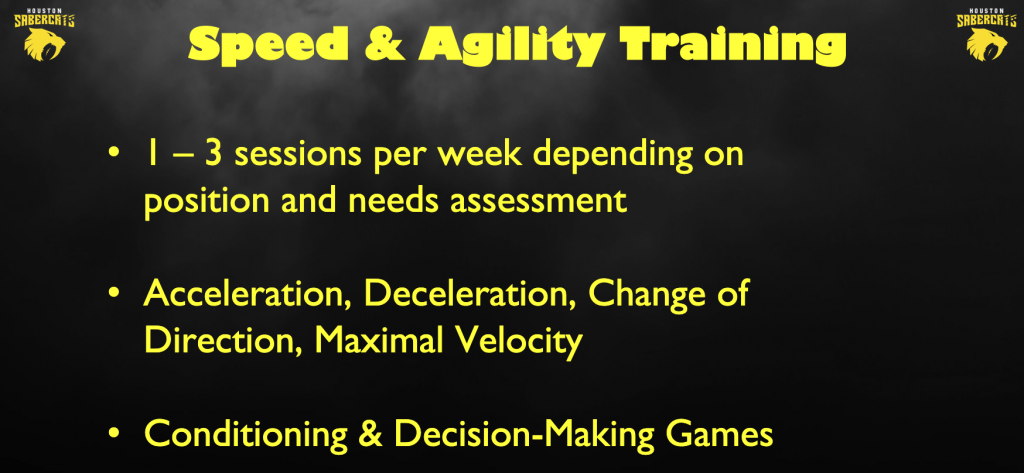
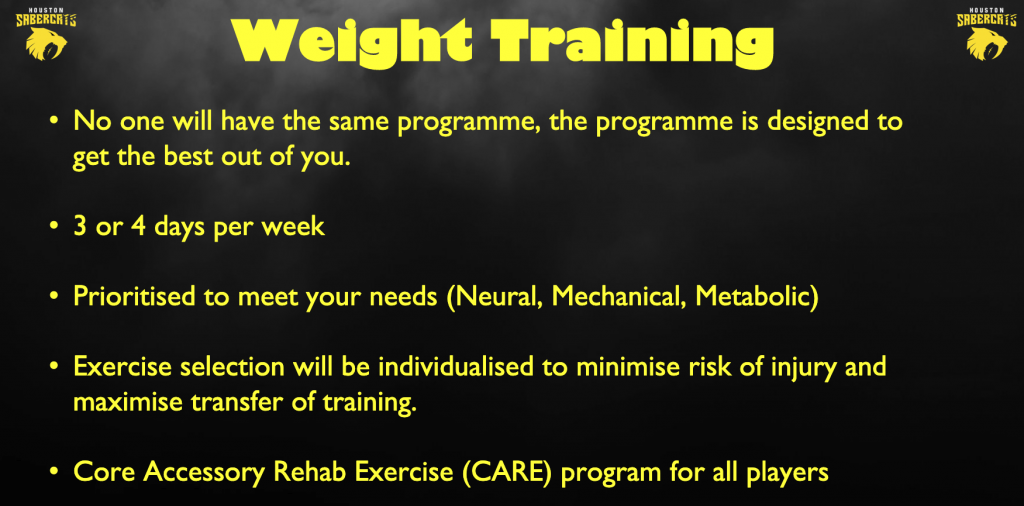
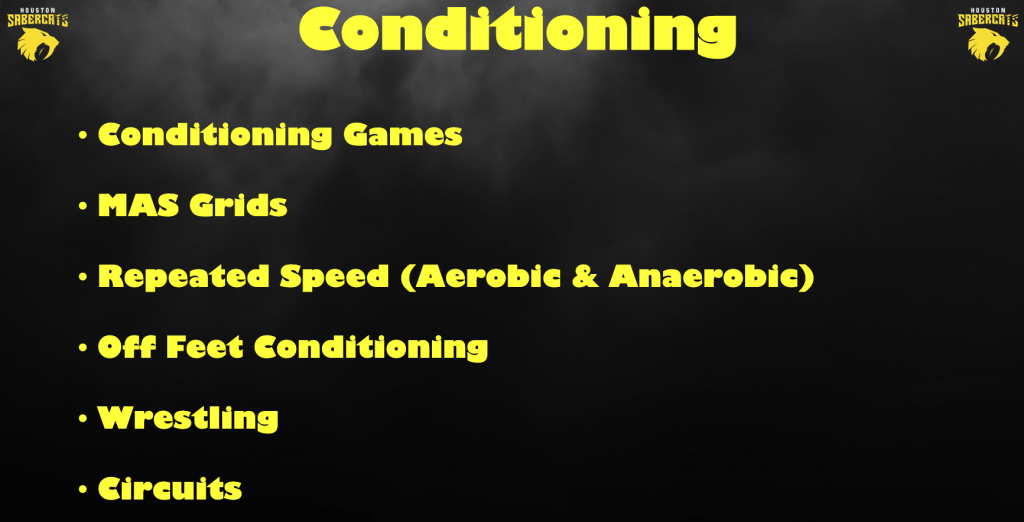
I want to leave you with a couple of quotes emphasizing the importance of ensuring all members of the team respect and trust the coaching process.
“If everyone is moving forward together, the success takes care of itself.” —Abraham Lincoln
“Only the guy who isn’t rowing has time to rock the boat.” —Jean-Paul Satre
Resources
Header image credit: peopleimages12 © 123rf.com
Ashley Jones has worked in three professional sports across 30 years and four continents. He was awarded the NSCA's Professional Coach of the Year in 2016. Ashley holds his CSCS (Certified Strength and Conditioning Specialist) since 1988 and is an honorary lecturer in the School of Therapeutic Sciences, University of Witwatersrand, Johannesburg, SA.










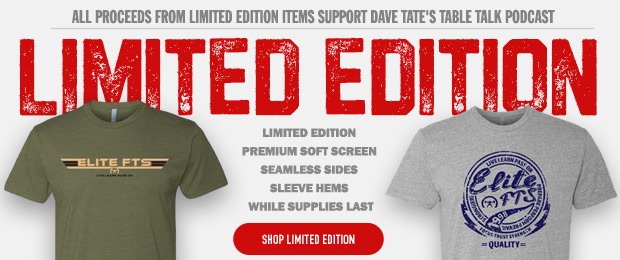
https://scienceforsport.fireside.fm/138